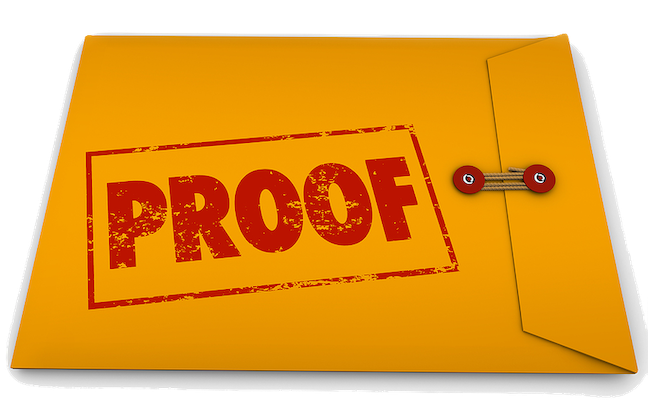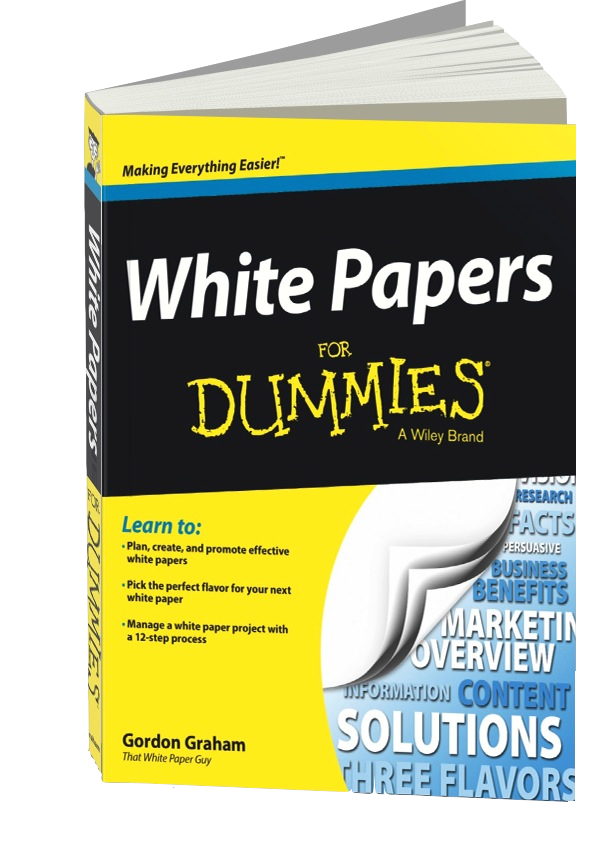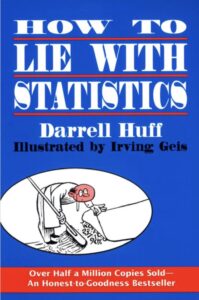
Tips on white paper sources
When you search for white paper sources, any company can claim they’re the best.
But finding the evidence to prove that can be tough.
Doing research to turn up the right nuggets of proof gives your white paper more authority.
Strong evidence strengthens your claims and proves that your white paper is more than one vendor’s opinion.
Every persuasive white paper contains strong proof for any claims.
Think like a lawyer
Throughout your research, my advice is to think like a lawyer… but not some polite lawyer in a tailored suit in an air-conditioned office.
No, you have to think like a mad-dog, street-fighting mongrel with red eyes and sharp teeth and absolutely no interest in a win-win.
As you assemble your sources, always picture the other side’s lawyer trying to chew up your evidence and spit it out.

Building an open-and-shut case
When you think like a lawyer, you want to build a case so tight that no judge can question it and no jury can resist it.
You need an argument so tight it leaves the other side gasping for air.
And that means:
- Digging up a mountain of evidence
- Grilling subject matter experts from the white paper sponsor
- Scrolling past the first screen of Google search results
That can mean getting out from behind your desk and hiking over to the nearest city or college library. There, you can consult a reference librarian to access tough-to-find journal articles or locate a relevant association to contact for an expert witness.
(Finished your white paper? Now send your client your list of sources.)

Where to find sources for a white paper
You may think you can use any source under the sun in any white paper.
But some sources are far better than others: more credible, more authoritative, and more persuasive.
The following table lists many sources you could draw on for a white paper—from analysts to Wikipedia—along with some brief notes on each source.
| Source | Acceptable? | Notes |
|---|---|---|
| Analysts | Yes | As long as they're credible |
| Associations | Yes | As long as they’re credible and established |
| Blogs | Sometimes | As long as they're credible |
| Books | Yes | Best to use classics in the field or titles published after 2000 |
| Consultants | Sometimes | Make sure they’re impartial |
| Forums | No | No credibility, usually anonymous |
| Go-to experts | Usually | Make sure they’re impartial |
| Government reports | Yes | Usually have authority |
| Industry reports | Usually | Make sure they’re factual |
| Magazines | Yes | Best published in the last five years |
| Newspapers | Sometimes | Stick to well-known papers, best published in the last two to three years |
| Professors | Yes | Usually have authority |
| Sources inside the company | Yes for research, No for quotes | Good for background, but don’t quote them directly: they are clearly biased |
| Trade magazines | Yes | Best published in the last five years |
| Websites | Sometimes | Make sure they're credible |
| White papers from other organizations | Yes | The more recognized the source, the better |
| White papers from other vendors | Sometimes | The more recognized the vendor, the better; but do not send prospects to your competition |
| White papers from the same company | No | Not convincing, and could create a circular argument |
| Wikipedia | No | Wikipedia is a secondary source; use it to find primary sources |
Of course, this table is only a guideline. Make sure to evaluate every source carefully using my TARP method.
With experience, you will know when you come across a piece of solid evidence to help make your case.
This article is an excerpt from White Papers for Dummies by Gordon Graham.
With dozens of tips on planning, producing, and promoting effective white papers, this is the most comprehensive guide to this topic ever published.
Click the cover to order White Papers For Dummies today!
Want to hear whenever there’s a fresh article on this site? Subscribe here to stay in the know on long-form content. From time to time, we’ll also send you word about some great new resource or training. And you can unsubscribe any time.





[…] similar to how professors (and That White Paper Guy!) frown on papers that cite Wikipedia as a source. It’s a highly useful online reference, but it […]